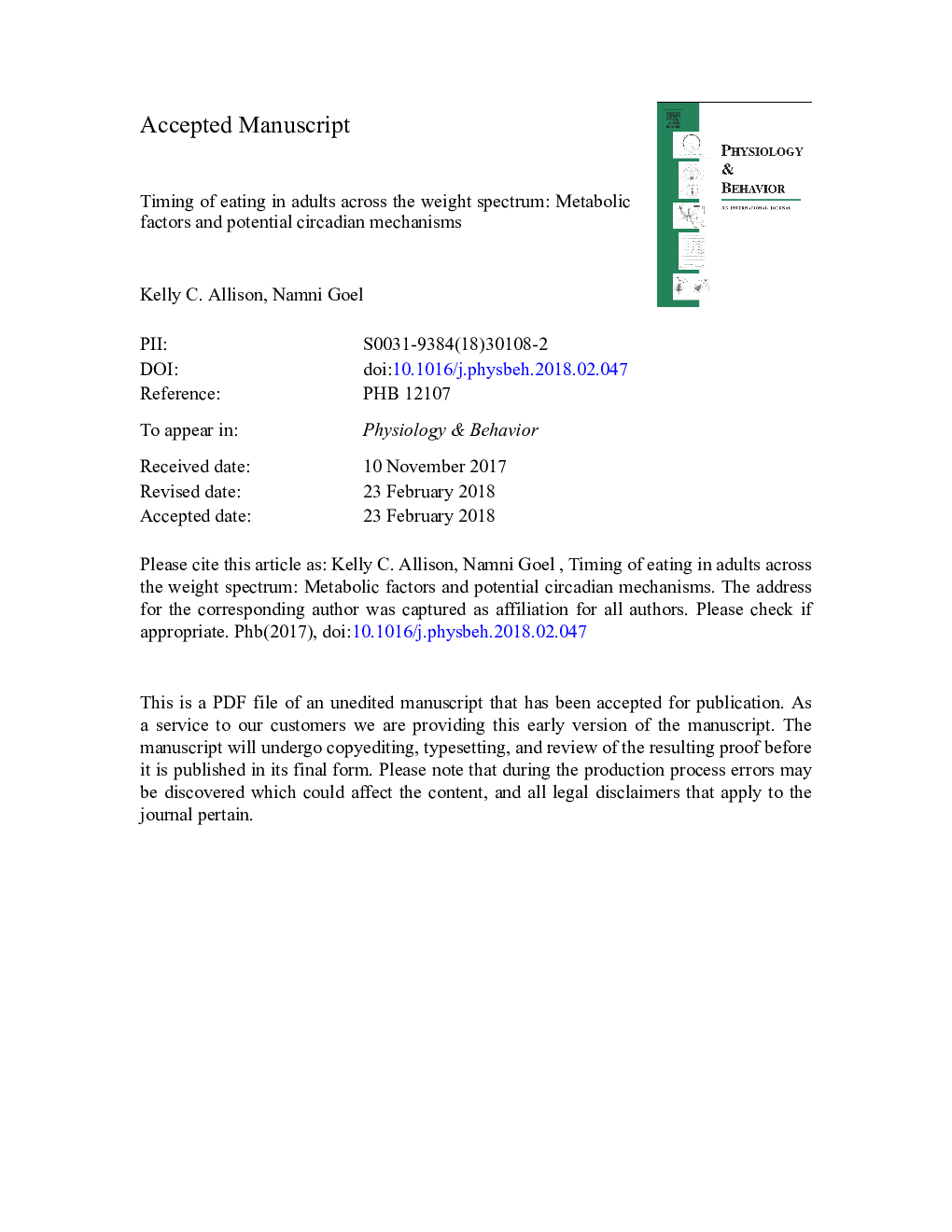| Article ID | Journal | Published Year | Pages | File Type |
|---|---|---|---|---|
| 8650464 | Physiology & Behavior | 2018 | 45 Pages |
Abstract
Timing of eating is recognized as a significant contributor to body weight regulation. Disruption of sleep-wake cycles from a predominantly diurnal (daytime) to a delayed (evening) lifestyle leads to altered circadian rhythms and metabolic dysfunction. This article reviews current evidence for timed and delayed eating in individuals of normal weight and those with overweight or obesity: although some findings indicate a benefit of eating earlier in the daytime on weight and/or metabolic outcomes, results have not been uniformly consistent, and more rigorous and longer-duration studies are needed. We also review potential circadian mechanisms underlying the metabolic- and weight-related changes resulting from timed and delayed eating. Further identification of such mechanisms using deep phenotyping is required to determine targets for medical interventions for obesity and for prevention of metabolic syndrome and diabetes, and to inform clinical guidelines regarding eating schedules for management of weight and metabolic disease.
Related Topics
Life Sciences
Biochemistry, Genetics and Molecular Biology
Physiology
Authors
Kelly C. Allison, Namni Goel,
